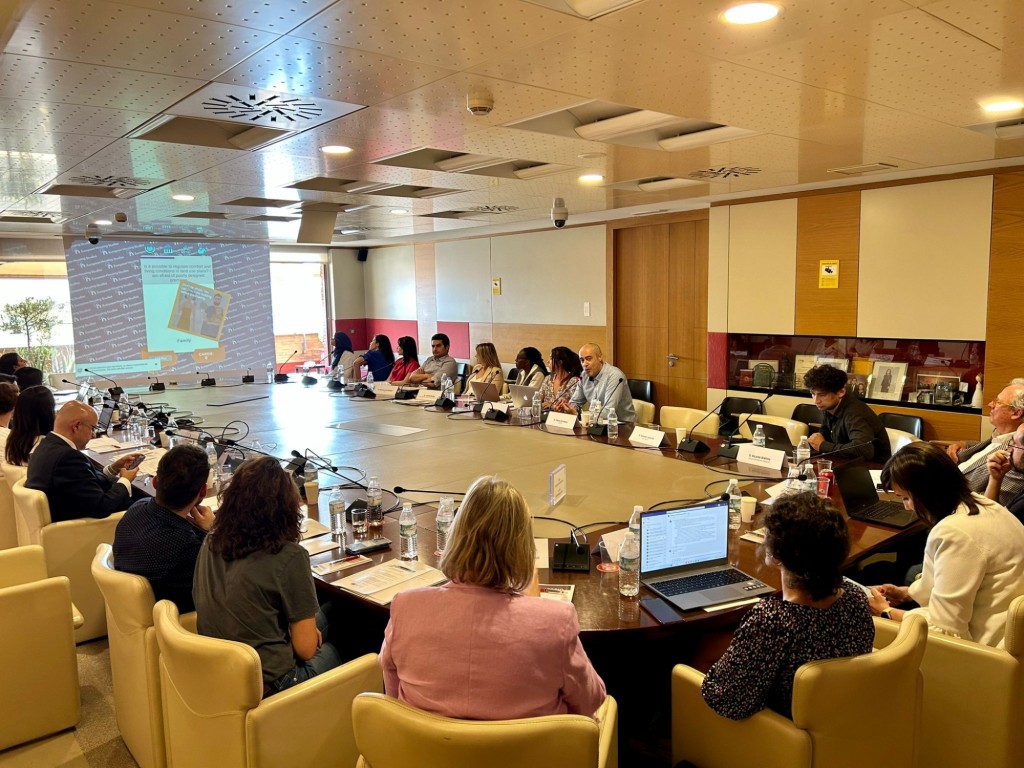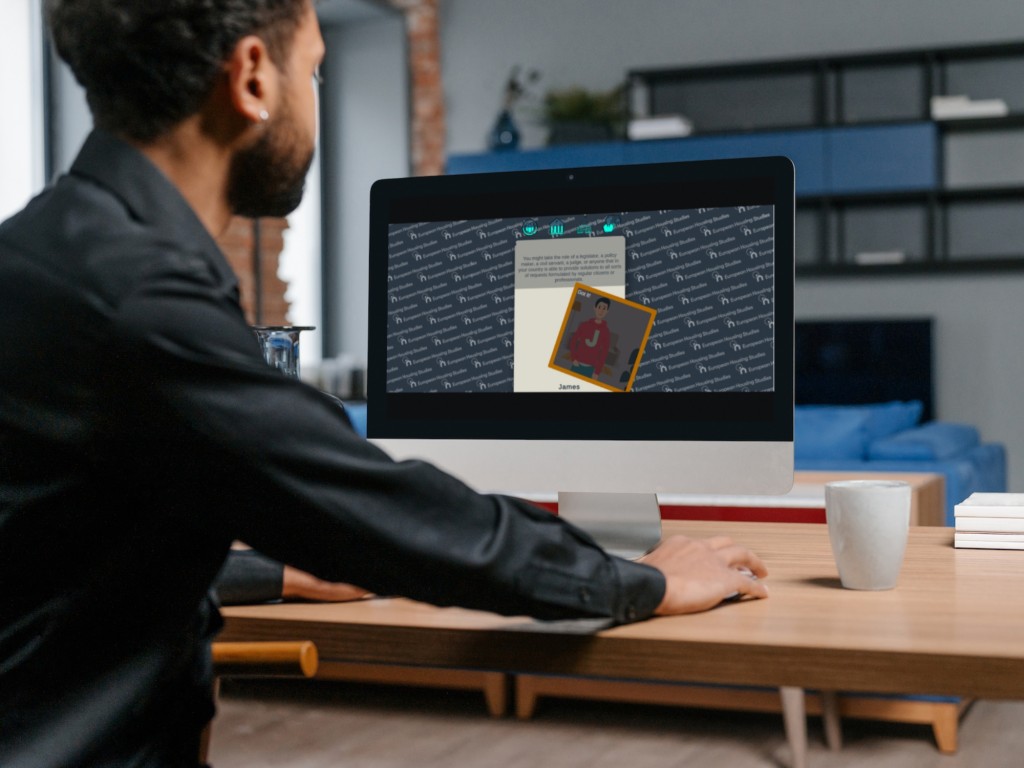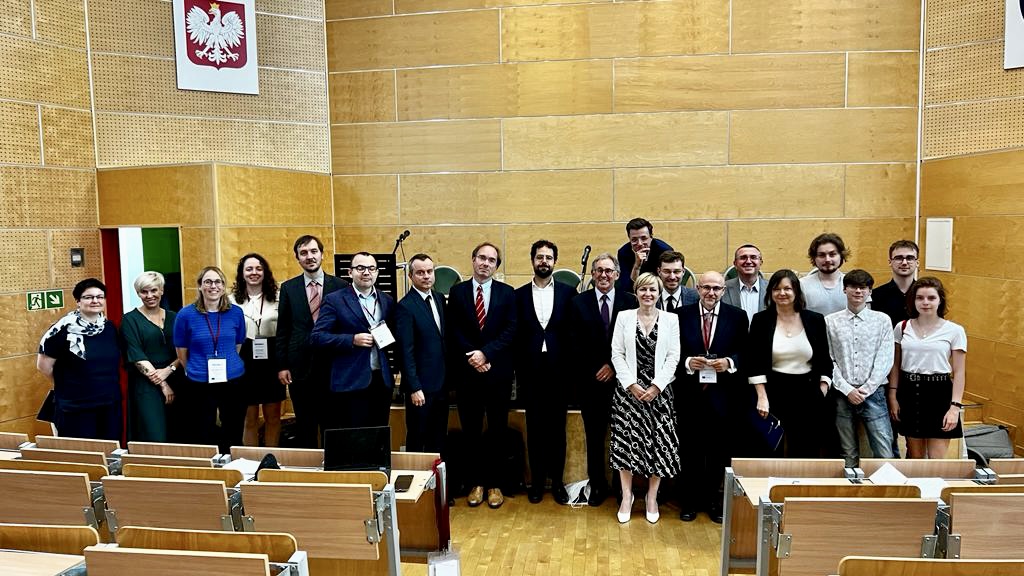31/07/2023
The UNESCO Housing Chair of the URV seeks to create a gamified course on housing in Europe
The European Housing+ project addresses the growing complexity of the study of housing in Europe and provides tools to understand and address the social, political, and economic challenges it poses

The European Housing+ project addresses the growing complexity of the study of housing in Europe and provides tools to understand and address the social, political, and economic challenges it poses
The European Housing+ project is an alliance between six European institutions specialized in the fields of housing and training, coordinated by the Housing Chair of the URV. Its aim is to improve the teaching of housing and real estate management among all those involved, including policy makers, academics, professionals, and students. It offers training materials with an interdisciplinary and international approach, and using new technologies, videos and gamified content.
Sergio Nasarre, professor of Civil Law at the URV and coordinator of Housing+, pointed out the need for a holistic and interdisciplinary approach to address the complexities of housing. In his opinion, “the dissemination of research in this area has been very limited until now and it was essential to create a European teaching model to address these challenges, especially in a context marked by recent major events that have exposed the problems in housing”.
Sergio Nasarre: “With Housing+ we seek to address the growing complexity of the study of housing and to provide professionals and other interested parties with the necessary tools to understand and respond to the challenges in this field.”
This project will run until August and has set up the course “European Housing Studies.” It is designed for sociologists, social workers, lawyers, economists, civil servants, NGOs, architects, and other professionals involved in housing projects and will be available from September as a free MOOC.
The course is structured in 9 parts and 48 chapters, developed by housing experts from eleven different countries and covering topics such as legal structures, management and decision-making processes, maintenance and renovations, co-ownership rights and duties, prevention of over-indebtedness and sociological aspects.
It also includes gamified activities, which give participants the chance to experiment with decisions and see how they impact housing, and affect such key dimensions as citizenship, financial institutions, public administration, and real estate professionals. Some of this content has been developed by 24 students, twelve of whom are from the URV, as part of a service-learning project under the supervision of the project’s experts and researchers.

This digital game was inspired by the board game “The Threshold” (in Catalan El Llindar), another gaming-teaching resource created by the Housing Chair of the URV, which in 2018 started to be used in European secondary school classrooms. It is designed to raise the awareness of the educational community about the complexity of the housing system and homelessness, and encourage reflection about the impact of decisions and the vulnerability of different groups.
The course was presented recently during seminars in Brussels, Madrid and Katowice (Poland). These seminars also served as a platform to show the results of the project, the training materials developed, and the books and videos to the state representatives of the main institutions in the real estate field in each country.

According to Nasarre, “the course represents a significant step forward for the academic and professional community, as it contributes to a deeper understanding of housing in Europe and the dissemination of research that addresses such immediate challenges as social inclusion and sustainability.”
The European Housing+ project is a strategic alliance between six European institutions specialized in the fields of housing and education: the University of Silesia (Poland), the National University of Ireland in Galway (Ireland), the International Union of Property Owners (UIPI), the Ibero-American Foundation of Knowledge (GECON), specialized in gamification, the Luxembourg Institute of Science and Technology (LIST), expert in new technologies, and the UNESCO Housing Chair of the Universitat Rovira i Virgili.
The URV members who have taken part in creating the course are Sergio Nasarre, Gemma Caballé, Héctor Simón, Núria Lambea and María Paula Rodríguez. They have been assisted by Leticia Asumu and Marina Pueyo.
